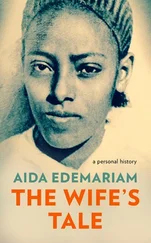His only son, Isaac D’Israeli, was then forty years old. He had been a difficult, rather morose child, showing little or no interest in his father’s business and apparently, on one occasion, had run away from home and been found lying on a tombstone in Hackney churchyard. His kindly father, profoundly relieved, hugged him and gave him a pony, much, no doubt, to the annoyance of his stricter mother who firmly believed that to spare the rod was to spoil the child. 3It was evidently through her influence that the boy was taken away from the school near his family’s house at Enfield and sent to work in the counting-house of his father’s agent in Amsterdam and thence to a firm in Bordeaux. Having shown not the least aptitude for business, taking no interest in politics which he claimed not to understand, and, in the words of his son, Benjamin, being ‘lost in reverie and…seeking no better company than a book’, he declared that he had written a poem celebrating the evils of business and that he had decided to become a man of letters, despite the ridicule which his mother poured upon the idea. The death of his maternal grandmother, who bequeathed him a handsome legacy, enabled him to fulfil his ambition. 4
He was certainly industrious and, despite the diffidence of his manner, assuming. He left one of his poems at Bolt Court for the approval of Samuel Johnson, who was too ill to take notice of it; he approached Vicesimus Knox, master of Tonbridge Grammar School, with the suggestion that he might become a clerkly member of his household in the medieval manner; he sent examples of his work to the topographer and antiquary, Richard Gough; he sought the patronage of Henry James Pye, the future Poet Laureate, whose talents, slender as they were, had been recognized by the Prime Minister, William Pitt, for his support in the House of Commons; and he made the acquaintance of Samuel Rogers, the witty poet and generous host. He also met the antiquary, Francis Douce, on one of his regular visits to the British Museum.
Poems and plays, novels, short stories, oriental romances, satires, biographies and book reviews flowed from his pen as well as publications with such titles as An Essay on the Literary Character ; A Dissertation on Anecdotes ; Miscellanies or Literary Recollections ; Calamities of Authors ; Genius of Judaism , and Curiosities of Literature . This last, a collection of sketches, anecdotes and brief essays on all manner of subjects from ‘Men of Genius Deficient in Conversation’ to ‘The Custom of Saluting after Sneezing’, was the most successful of all his books and was reissued in its twelfth edition in 1841.
Samuel Rogers said of him, ‘There is a man with only half an intellect who writes books that must live’; 5and, while never renowned for his wit or striking intelligence, Isaac D’Israeli was a welcome enough guest at such dinner tables as that of the publisher, John Murray, while Sir Walter Scott flattered and astonished him by repeating some of his verses when first introduced to him.
Byron was another admirer. Having read Quarrels of Authors , he described it as being ‘most entertaining’; and he told Murray, after reading and annotating a copy of the diligent author’s Essay on the Literary Character , ‘I have a great respect for Israeli and his talents, and have been amused by them greatly and instructed often…I don’t know a living man’s book I have taken up so often or lay down more reluctantly than Israeli’s.’
When the two men first met, Byron treated him with so much respect that D’Israeli thought he was being teased. ‘The fact is’, he wrote complacently, ‘that my works being all about literary men were exceedingly interesting to him. They contained knowledge that he could get nowhere else. It was all new to him.’ 6
By the time of the appearance of the twelfth edition of Curiosities of Literature , Isaac D’Israeli had become an easily recognized figure in the streets of Bloomsbury. Some years before, an American author, who saw him from time to time in the British Museum, described him as being ‘a dapper little gentleman in bright coloured clothes, with a chirping, gossipy expression of countenance, who had all the appearance of an author on good terms with his bookseller’.
He was also by then a contented family man. At the age of thirty-five he had married Maria Basevi, the pretty daughter of an Italian Jew, a merchant in a good way of business, who had come to England from Verona in 1762. Maria’s mother was of distinguished Jewish stock, one of whose illustrious forebears was a leader of the great exodus of his race from Spain in 1492. Maria’s son, Ben, was extremely proud of his Jewish ancestry, considering himself of highly aristocratic birth, exaggerating, in a characteristically romantic way, the family’s past glories and – unaware of his mother’s distinguished descent – making unwarranted claims for that of his father. 7
His mother’s nephew was George Basevi, the architect, whose works included the Fitzwilliam Museum at Cambridge and large parts of Belgravia in London which his cousin, Benjamin Disraeli, was unfairly to condemn as being ‘as monotonous as Marylebone, and so contrived as to be at the same time insipid and tawdry’.
Maria D’Israeli’s first child, Sarah, was born in December 1802; two years later came Benjamin, then three more boys, none of whom became in any way distinguished. Napthali died in infancy; Ralph, five years younger than Benjamin, was born in 1809; James, known as Jem, born in 1813, was almost ten years younger.
Benjamin had little in common with either of these two surviving brothers. To his sister, however, he was as devoted as she was to him; and he was to write to her with a fond and frank intimacy which endured until her death.
Benjamin was also deeply and unreservedly attached to his father, of whom he wrote affectionately, ‘He was a complete literary character…Even marriage produced no change; he rose to enter the chamber where he lived alone with his books, and at night his lamp was ever lit within the same walls…He disliked business, and he never required relaxation…If he entered a club, it was only to go into the library. In the country he scarcely ever left his room but to saunter in abstraction upon a terrace, muse over a chapter, or coin a sentence.’ 8
When he was six years old, Benjamin was sent to a school in Islington kept by a Miss Roper; and from there he went to a school in Blackheath kept by a nonconformist minister, John Potticary, who numbered several Quakers among his pupils as well as at least one Jew with whom Benjamin was required to stand at the back of the class during Christian prayers. On Saturdays these two Jewish boys were also singled out to receive instruction from a Hebrew rabbi. At the end of term, so one of his fellow pupils said, ‘Disraeli went home for the holidays in the basket of the Blackheath coach, [firing] away at the passers-by with his peashooter’. 9
There is no record of Benjamin’s father having objected to his son’s instruction in the faith of his ancestors by the rabbi at Blackheath. But when, in 1813, Isaac was elected warden of the Bevis Marks synagogue, he declined to take office. A fine of £40 was imposed, he refused to pay it, requiring the elders to accept that ‘a person who had lived out of the sphere of [their] observations, of retired habits of life who [could] never unite in [their] public worship, because, as now conducted, it disturbed instead of excited religious emotions…Such a man never could accept the solemn function of an elder of your congregation’.
Having broken with the synagogue, Isaac might well have allowed the matter to rest there, content for his son to be the non-practising Jew that he was himself. But a friend, Sharon Turner, a fellow frequenter of the British Museum, a solicitor, historian, devout Anglican and adviser on legal matters to the publisher John Murray, persuaded him to allow his four children to be baptised. The ceremony of baptism accordingly took place at St Andrew’s, Holborn on the last day of July 1817. Benjamin was then twelve years old.
Читать дальше











